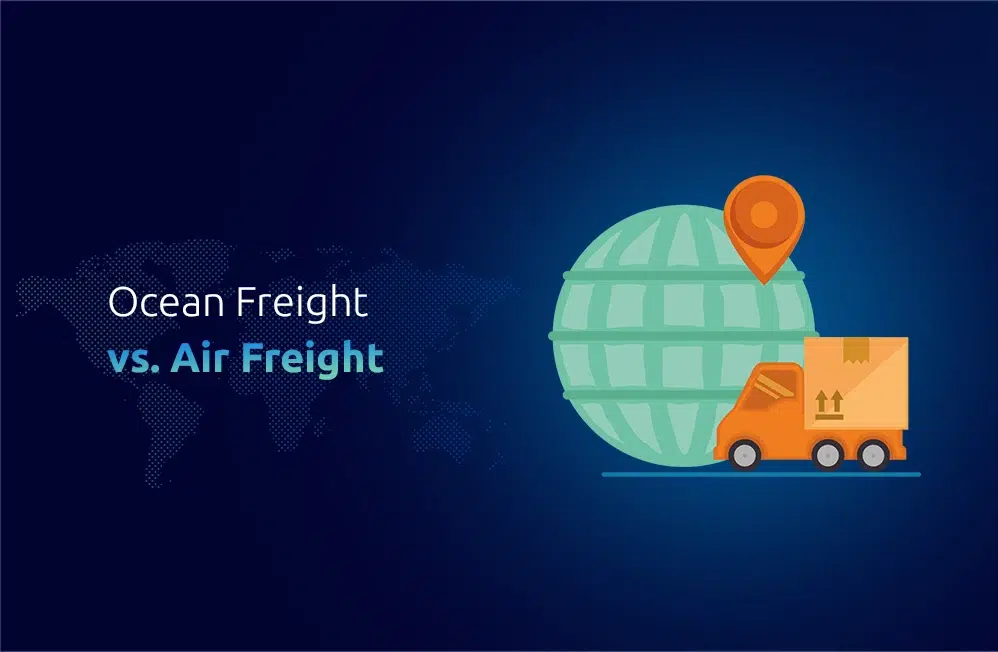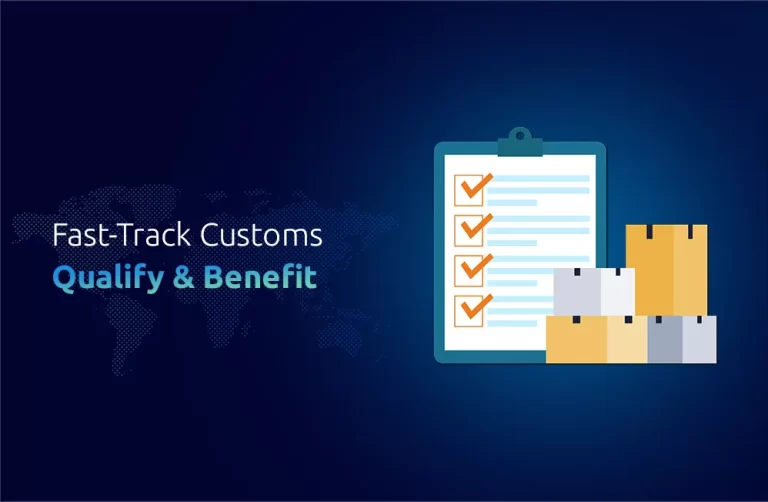Businesses involved with international shipments often need help deciding between air freight or sea freight for international shipping. Air freight is well known for its quick delivery times; sea freight, however, is renowned for being cost-efficient & its ability to manage large cargo volumes efficiently. Both methods have their distinct strengths and weaknesses – choosing which method best fits your business depends on a variety of factors – which is why this guide compares both options on key parameters so that you can make an informed decision for your company.
What is Sea Freight?
Sea freight more commonly referred to as ocean freight involves shipping equipment via ships across oceans & seas. As one of the cornerstones of global trade, sea freight serves an integral role in moving large volumes of cargo across vast distances efficiently and cost-effectively. Containerized goods are loaded onto cargo ships before being taken directly to their destination ports. This mode is especially cost-effective for shipping bulky or heavy items over long distances as well as non-perishable goods shipments over long-death of non-perishability issues shipments of non-perishable goods over long or any other means possible mode used transport modes or airfreight service provided by airfreight carriers.
What is Air Freight?
Air freight or cargo refers to the transport of goods via airplane. This fast and efficient mode of transport caters to time-sensitive shipments by loading cargo onto aircraft that then transport it directly to their destination’s airports. This method eschews delays associated with other modes like sea freight or road freight while offering speed and reliability.
Consider the factors below While Choosing Between Sea Freight and Air Freight
- Budget
Sea freight is typically the more cost effective method of shipping equipment. According to research, air freight typically costs 12-16 times more than sea freight for similar shipments. However, this difference becomes noticeable only when cargo volume exceeds that of an entire container load; otherwise, costs for smaller packages or sub-container loads may sometimes make sea freight more costly than air.
Air freight could provide more economical options for smaller shipments with time-sensitive delivery requirements; platforms like Freight allow businesses to compare real-time rates from both air and sea carriers in real time to find their optimal deal based on individual business needs.
- Timeline
Air freight stands out in terms of speed. Shipments can typically arrive within several days depending on their route and destination; typically, air freight deliveries take between one to seven days, making them perfect for businesses needing quick deliveries for perishable goods, high-value items, or urgent orders.
- Capacity and Volume
Sea freight stands out when it comes to capacity, handling massive volumes in one shipment without rules on weight or size – perfect for shipping raw materials, heavy equipment, or manufactured goods in large volumes with few constraints or weight limitations. Full Container Load (FCL) services allow clients to scale shipments according to how much cargo needs transporting.
- Security
Both sea freight and air freight provide security measures, but air freight often proves more reliable in certain ways. The controlled environment of air transport reduces theft or damage risks; also, as air freight often involves shorter transit times with fewer touchpoints along its journey, there is less chance for mishandling that might arise with sea freight shipments on longer journeys.
Sea freighting may present its security challenges; longer and more complex transit routes with multiple handling points increase the chances of theft or damage; however, modern shipping containers equipped with GPS tracking and advanced security systems have greatly enhanced this form of shipment.
- Environmental Impact
Sea freight often proves to be a more eco-friendly choice when considering environmental impact. Shipping goods by sea is much more energy-efficient than air transport; ships can carry significantly larger amounts per trip than airplanes do and thus result in a lower carbon footprint per ton-mile of goods transported compared to air shipments – making sea freight an optimal option for bulk and large shipment volume shipments.
Conclusion
Selecting ocean freight or air freight depends entirely upon your business requirements. If you need to ship large volumes of non-perishable goods at lower costs with longer delivery times, sea freight could be ideal. On the other hand, air freight offers speed and security at a more costly rate. Understanding the key differences in budget, timeline, capacity, security, environmental impact, and the type of goods you’re transporting will help you make the best choice for your supply chain. By weighing these factors and utilizing advanced tools like Freight to compare rates, you can streamline your decision-making process and select the most suitable shipping method for your business with One Union Solutions.
Did You Know…
According to the International Transport Forum, sea freight emits 16-40 times less CO2 per ton-mile compared to air freight, making it a greener choice for large shipments.
FAQs
- Which shipping mode is less costly – air freight or sea freight?
Sea freight generally provides more cost-effective shipping solutions, especially for large bulk shipments. Conversely, air freight can often be more suitable for smaller items that require fast delivery; its costs tend to vary between 12-16 times higher depending on its size and weight.
- How long does it take for air freight to deliver goods?
The majority of foreign shipments take one to seven days to reach, depending on the destination and airline availability. Air freight is renowned for its rapidity. Because of this, air freight is perfect for shipments that need to be made quickly.
- What kinds of goods work best for shipping by sea?
Sea freight works well for big, bulky, or non-perishable items that can be delivered later. Longer distance shipments of consumer items, electronics, furniture, machinery, and raw materials are best suited for it. Businesses that carry many goods will find sea freight very beneficial.
- Is freight by air safer than freight by sea?
While both sea freight and air freight provide security precautions, air freight often offers better security for high-priority and valuable products. The chance of theft or damage during transit is decreased because air freight is frequently handled in smaller, more regulated settings. Nonetheless, tracking, surveillance, and secure handling are additional ways that advanced containerized sea freight systems provide strong security.
- How does air freight differ from sea freight in terms of environmental impact?
Compared to sea freight air freight has a substantially larger carbon impact. Particularly for large or non-urgent shipments, air freight is less environmentally beneficial than ships since airplanes generate more greenhouse gasses per ton-mile. For huge cargoes traveling great distances, sea freight is thought to be a more ecological and fuel-efficient choice.












